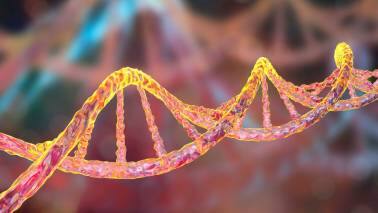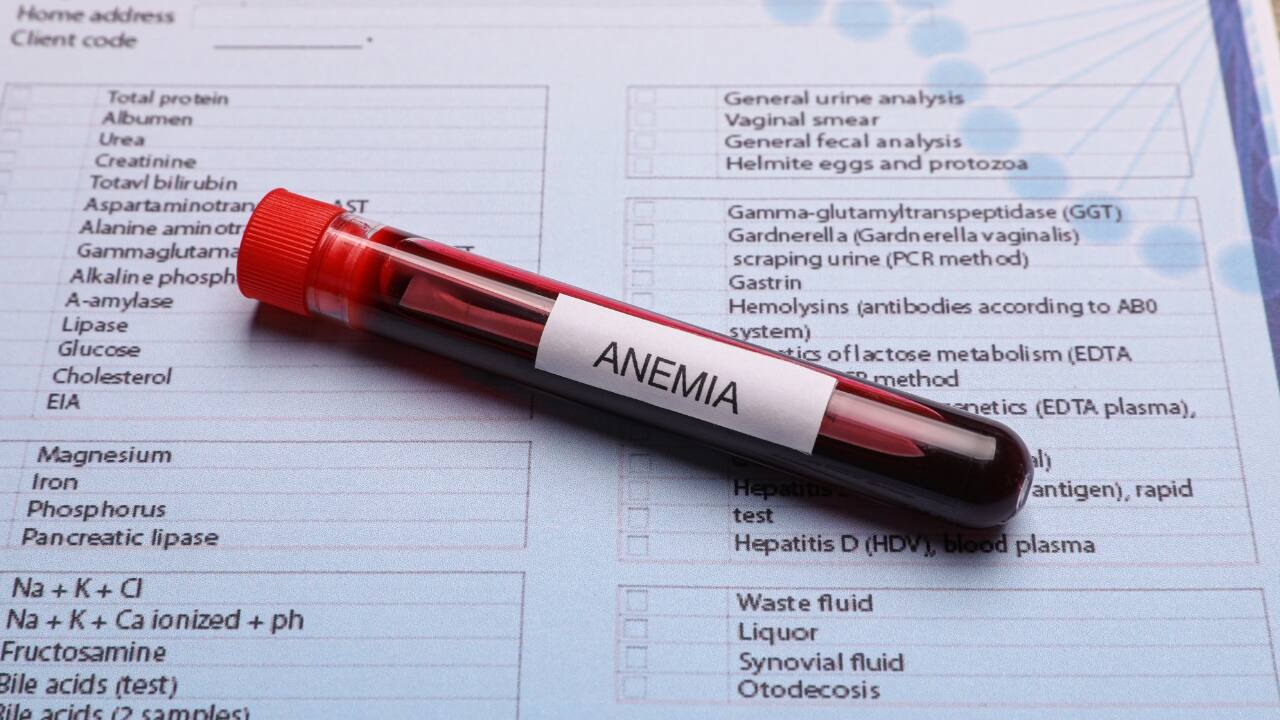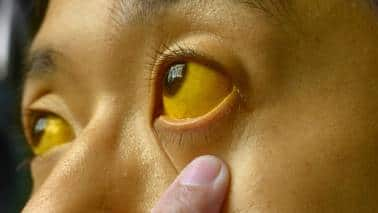What you eat could be increasing your cancer risk
Stomach cancer, more common in men, has genetic, dietary, and environmental causes. Risk increases with red meat, nitrosamines, and low vitamin intake. Early signs include fatigue, weight loss, anaemia, and abdominal mass. Diagnosis needs imaging and biopsy, while surgery is the main treatment after correcting nutrition and other health factors.
1/10

Why Should One Be Concerned?
Carcinoma of the stomach has been called the “captain of the men of death”. It is commonly seen in males more than females, and it can have multiple etiological factors and also has precursor lesions that may point to impending cancer. Environment, occupation as well as dietary habits can influence the incidence of carcinoma stomach.
Carcinoma of the stomach has been called the “captain of the men of death”. It is commonly seen in males more than females, and it can have multiple etiological factors and also has precursor lesions that may point to impending cancer. Environment, occupation as well as dietary habits can influence the incidence of carcinoma stomach.
2/10

The Influence of Family History and Genes
Genetic predisposition and familial factors are important factors of the cause of stomach cancer. People with blood group A are more likely to develop this malignancy. Mutations in certain genes like APC gene, E-cadherin gene, also playa role. If a first degree relative, like the father, mother or sibling have stomach cancer, one is likely three to six times more likely to be affected with this cancer.
Genetic predisposition and familial factors are important factors of the cause of stomach cancer. People with blood group A are more likely to develop this malignancy. Mutations in certain genes like APC gene, E-cadherin gene, also playa role. If a first degree relative, like the father, mother or sibling have stomach cancer, one is likely three to six times more likely to be affected with this cancer.
3/10

Your Plate Could Be the Problem
Your diet can play a role in the development of neoplastic changes in the stomach. Excessive consumption of red meat, smoked salmon, cabbage, and any type of food items that are rich in nitrosamines like bacon, sausages, ham or alcoholic beverages. Alcohol must certainly be kept at bay to prevent being predisposed to stomach cancer
Your diet can play a role in the development of neoplastic changes in the stomach. Excessive consumption of red meat, smoked salmon, cabbage, and any type of food items that are rich in nitrosamines like bacon, sausages, ham or alcoholic beverages. Alcohol must certainly be kept at bay to prevent being predisposed to stomach cancer
4/10

Vegetables, Vitamins and Vital Choices
It is time to change the platter if it does not contain enough amount of vegetables. Low levels of vitamin A and C are not a good sign. One must consume foods like eggs, cheese, milk and other dairy products for vitamin A and to replenish the levels of vitamin C, oranges, lemons, limes, strawberries, guava and kiwi must certainly be added.
It is time to change the platter if it does not contain enough amount of vegetables. Low levels of vitamin A and C are not a good sign. One must consume foods like eggs, cheese, milk and other dairy products for vitamin A and to replenish the levels of vitamin C, oranges, lemons, limes, strawberries, guava and kiwi must certainly be added.
5/10

Lifestyle, Occupation and Infection
Other influences include one’s lifestyle, occupation, and infections by viruses like the Elstein-Barr virus. People who have been affected by chronic gastritis, pernicious anemia, previous gastric surgery or any gastric ulcer are more likely to have gastric carcinoma in the future. Twins developing from the same zygote (monozygotic twins) carry more risk than those who were born of two different zygote (dizygotic twins).
Other influences include one’s lifestyle, occupation, and infections by viruses like the Elstein-Barr virus. People who have been affected by chronic gastritis, pernicious anemia, previous gastric surgery or any gastric ulcer are more likely to have gastric carcinoma in the future. Twins developing from the same zygote (monozygotic twins) carry more risk than those who were born of two different zygote (dizygotic twins).
6/10

Early Red Flags: Appetite Loss, Anaemia
A recent loss of one’s appetite, a sudden reduction in weight, getting satiated easily after a meal or an easy fatigability can be initial symptoms in people who may have gastric carcinoma. Alongside, about 40% patients with carcinoma stomach may also be affected by iron deficiency anaemia
A recent loss of one’s appetite, a sudden reduction in weight, getting satiated easily after a meal or an easy fatigability can be initial symptoms in people who may have gastric carcinoma. Alongside, about 40% patients with carcinoma stomach may also be affected by iron deficiency anaemia
7/10

Mass Effects: Pain, Vomiting, and a Lump in the Abdomen
Vomiting is also common, along with upper abdominal pain. A mass may be felt on palpation of the abdomen, above your belly button. It can be nodular, hard, mobile and will often move with respiration. Due to this mass in the upper part of the abdomen, the person may find it difficult to swallow (dysphagia)
Vomiting is also common, along with upper abdominal pain. A mass may be felt on palpation of the abdomen, above your belly button. It can be nodular, hard, mobile and will often move with respiration. Due to this mass in the upper part of the abdomen, the person may find it difficult to swallow (dysphagia)
8/10

When Cancer Spreads: Jaundice, Ascites
If the cancer has spread to other organs, like the liver, yellowish discolouration of the skin and the eyes (jaundice) may become prominent. Collection of fluid in the abdominal cavity can make the abdomen distended. About 15% of people with stomach cancer may also have blood while vomiting and also blood in stools.
If the cancer has spread to other organs, like the liver, yellowish discolouration of the skin and the eyes (jaundice) may become prominent. Collection of fluid in the abdominal cavity can make the abdomen distended. About 15% of people with stomach cancer may also have blood while vomiting and also blood in stools.
9/10

Not Always Cancer: Know the Mimics
There can be other conditions that can have similar features and presentations like stomach cancer. Gastritis, narrowing of the pylorus (the part of the stomach that empties food into the intestine), acid peptic disease, pancreatic cancer, and cancer of the large intestine — such differential diagnoses must be ruled out
There can be other conditions that can have similar features and presentations like stomach cancer. Gastritis, narrowing of the pylorus (the part of the stomach that empties food into the intestine), acid peptic disease, pancreatic cancer, and cancer of the large intestine — such differential diagnoses must be ruled out
10/10

Investigations and Surgical Planning
Investigations like checking the level of haemoglobin, barium meal, gastroscopy along with biopsy, endosonography, ultrasound abdomen and CT scan abdomen can aid in diagnosis. Surgery is the treatment of choice. However, the person’s nutrition status, anemia, fluids and electrolytes must be corrected before an operation is planned.
Disclaimer: This article, including health and fitness advice, only provides generic information. Don’t treat it as a substitute for qualified medical opinion. Always consult a specialist for specific health diagnosis
Investigations like checking the level of haemoglobin, barium meal, gastroscopy along with biopsy, endosonography, ultrasound abdomen and CT scan abdomen can aid in diagnosis. Surgery is the treatment of choice. However, the person’s nutrition status, anemia, fluids and electrolytes must be corrected before an operation is planned.
Disclaimer: This article, including health and fitness advice, only provides generic information. Don’t treat it as a substitute for qualified medical opinion. Always consult a specialist for specific health diagnosis
Discover the latest Business News, Budget 2025 News, Sensex, and Nifty updates. Obtain Personal Finance insights, tax queries, and expert opinions on Moneycontrol or download the Moneycontrol App to stay updated!






